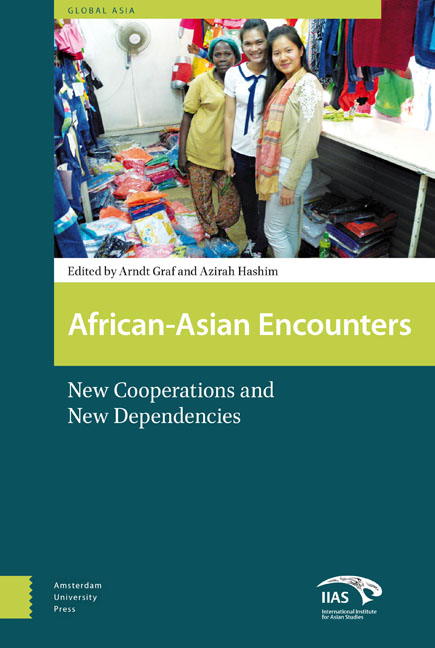1 - In Constant Search of Money to Survive: African Youths in Malaysia
Published online by Cambridge University Press: 28 January 2021
Summary
Introduction
In the course of the past decades, the number of Africans in Malaysia has significantly increased. One reason for this is the privatization of education and the active recruitment of students by private colleges and universities who make it relatively easy for foreign students to obtain a visa (Lian 2011; Daniels 2014). The situation in which these Africans find themselves in Malaysia, however, is not at all easy due to the work policies in the country that create immense challenges and urge these Africans to begin all kinds of activities to be able to survive during their stay. Their often informal, if not illegal activities have led to a bad reputation that tends to be stereotypically projected upon Africans, particularly upon Nigerians who form the largest African group of students (Ministry of Higher Education n.d.). The conditions that these Africans face in Malaysia are a good example of the situations in which, through their legal categories, states legally produce the illegality of migration trajectories (De Genova 2002).
In such a situation, many Africans experience in their host country a reduction of their social status, encounters with racism, and stereotypical typecasting of them as criminals. This complicated situation has spurred African creativity and cultivated various forms of hustling, i.e. ‘be ready to do any kind of work’ (Alpes 2011: 14), among which are attempts at targeting the wealthy in the local and global community, to gain from them, what they feel is denied to them (see also Roitman 2005). Despite the multiple challenges Africans face in Malaysia, they have built up an entire infrastructure for fellow Africans, and some have amassed considerable wealth (Röschenthaler forthcoming).
The movement of Africans to Asian countries, especially China (Bredeloup 2012; Bodomo 2015; Haugen 2012) but also South East Asian countries such as Malaysia, redirects the attention of migratory studies that has until the 1980s focused on movements from ‘developing countries’ to Europe and North America (Sassen 1991). Such movement was understood as a unidirectional procedure with the objective of integration and permanent settlement. Studies of transnationalism (Dunn 2005; Glick Schiller et al. 1992; Vertovec 1999; Dunn 2005) in contrast acknowledge the linkage that remains between migrants and their home countries and the potential for their development.
- Type
- Chapter
- Information
- African-Asian EncountersNew Cooperations and New Dependencies, pp. 17 - 46Publisher: Amsterdam University PressPrint publication year: 2017
- 1
- Cited by

